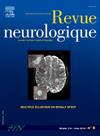癫痫患儿家庭的临床试验知识。一项来自法国罕见癫痫中心的调查。
IF 2.3
4区 医学
Q2 CLINICAL NEUROLOGY
引用次数: 0
摘要
临床试验对创新疗法的发展至关重要。许多患者和家属对生物医学研究的了解有限。这项研究旨在确定癫痫患儿的家庭是否有兴趣了解更多的生物医学研究,他们想要了解更多的具体试验相关主题,以及他们希望如何接收这些信息。一份在线调查通过电子邮件发送给29个合作伙伴协会,并在我们的罕见癫痫参考中心的社交网络上分享。在152名受访者中,63%的人了解生物医学研究,99%的人表示有兴趣了解更多。话题包括新的抗癫痫药物是如何开发的,药物批准的各个阶段,安慰剂的使用,随机化,以及治疗效果和副作用的评估。副作用和治疗效果最受关注。虽然对临床试验的认识正在提高,但仍需要更好地理解安慰剂、安全性和随机化等关键概念。社交媒体、教育视频和书面资源可以成为增加癫痫患者及其家属对临床试验的了解和参与的实用工具。本文章由计算机程序翻译,如有差异,请以英文原文为准。
Clinical trial knowledge in families of children with epilepsy. A survey from a French Center for Rare Epilepsies
Clinical trials are essential to the development of innovative treatments. Many patients and families have limited knowledge of biomedical research. This study aimed to determine whether families of children with epilepsy were interested in learning more about biomedical research, what specific trial-related topics they wanted to know more about, and how they preferred to receive this information. An online survey was emailed to 29 partner associations and shared on the social networks of our Rare Epilepsy Reference Center. Of the 152 respondents, 63% knew about biomedical research, and 99% expressed interest in learning more. Topics of interest included how new anti-seizure medications are developed, the stages involved in drug approval, using placebos, randomization, and assessing treatment efficacy and side effects. Side effects and treatment efficacy attracted the most interest. While awareness of clinical trials is improving, there is still a need for a better understanding of critical concepts such as placebos, safety, and randomization. Social media, educational videos, and written resources could be practical tools for increasing knowledge and participation in clinical trials among patients with epilepsy and their families.
求助全文
通过发布文献求助,成功后即可免费获取论文全文。
去求助
来源期刊

Revue neurologique
医学-临床神经学
CiteScore
4.80
自引率
0.00%
发文量
598
审稿时长
55 days
期刊介绍:
The first issue of the Revue Neurologique, featuring an original article by Jean-Martin Charcot, was published on February 28th, 1893. Six years later, the French Society of Neurology (SFN) adopted this journal as its official publication in the year of its foundation, 1899.
The Revue Neurologique was published throughout the 20th century without interruption and is indexed in all international databases (including Current Contents, Pubmed, Scopus). Ten annual issues provide original peer-reviewed clinical and research articles, and review articles giving up-to-date insights in all areas of neurology. The Revue Neurologique also publishes guidelines and recommendations.
The Revue Neurologique publishes original articles, brief reports, general reviews, editorials, and letters to the editor as well as correspondence concerning articles previously published in the journal in the correspondence column.
 求助内容:
求助内容: 应助结果提醒方式:
应助结果提醒方式:


